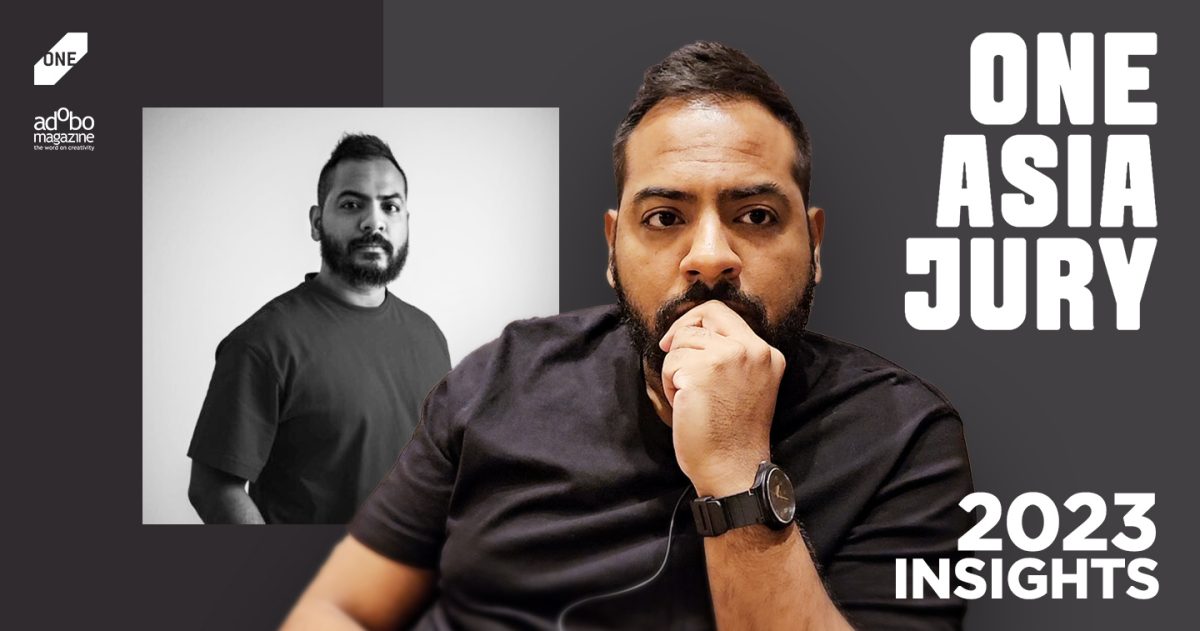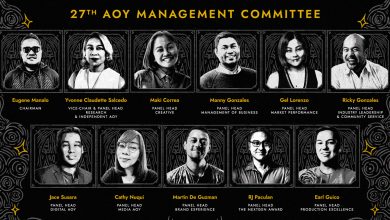SHANGHAI, CHINA — While many creatives tend to get swept up in the race to apply new technologies, it’s those who still think idea-first that manage to make the most emotionally resonant executions. It’s a belief held by Forsman & Bodenfors Head of Creative Firrdaus Yusoff, who recently shared his thoughts on the current state of creative industries in an exclusive interview with adobo Magazine.
Firrdaus was in Shanghai this past October as part of the jury for the 2023 ONE Asia Awards, set to announce their winners this coming December 12. In the course of his storied career, he’s ideated impressive campaigns across three continents, helping Mercedez Benz become Singapore’s number one automotive brand and launching McDonald’s Nasi Lemak Burger – the brand’s best-selling product in 40 years. He was invited to the ONE Asia jury as an award-winning creative, discussing who should win among the candidates in the Design, Print, Out-Of-Home, IP & Product Design, Branded Entertainment, and Experimental & Immersive categories.
Firrdaus had much to say about the strategic use of new tech, and how it isn’t always used correctly. “As a creative now, especially, you are surrounded by a lot of different tools and techniques, different executions, and sometimes people get lost in the execution,” he said.
“I think, as a creative, you always have to lean back to the core idea and thought. That’s your main task. You need to conjure the idea, and whether that is an idea that stays pure to the intent of what you’re trying to do.”
“As long as you take a step back and always think idea-first, and whatever the medium [is] that you need in order to bring the idea to life, then I think you’re good,” he concluded.


Asia, he said, is rife with opportunities to ideate, a quality he attributes to diversity in the region. The mix of cultures and frantic pace of life in Asian countries encourages creative thinking in finding novel solutions to novel problems.
“In Asia, because of the diversity and how fast things move, it always creates new problems. It always creates new tensions,” he shared. “So I think we have that edge,”
One example of this is the unique case of Indian cricketeer Kapil Dev’s legendary 175-run innings at the 1983 World Cup. There is no known recording of the game, leaving the feat lost to history. Telecommunications company Airtel, however, leveraged the speed of modern processing and their own 5G network, utilizing AI and other new technologies to generate simulated footage of the game as told by Dev himself.
“And of course people know cricket is a religion in India,” Firrdaus explained, “And the very fact that it was a nice use – again as a tool – it was a nice use of modern tech with the AI, but with a very strong emotional hook. That made it very relevant.
“‘Ah okay, that’s why you used it. You brought it to life,’” he continued. “I think that was a perfect blend of technology and emotional resonance.”



Watch more of Firrdaus’ insights on the marriage of creativity and technology, as well as on the subjectivity of design, in the full interview with adobo Magazine’s Editor-in-Chief Angel Guerrero below:










